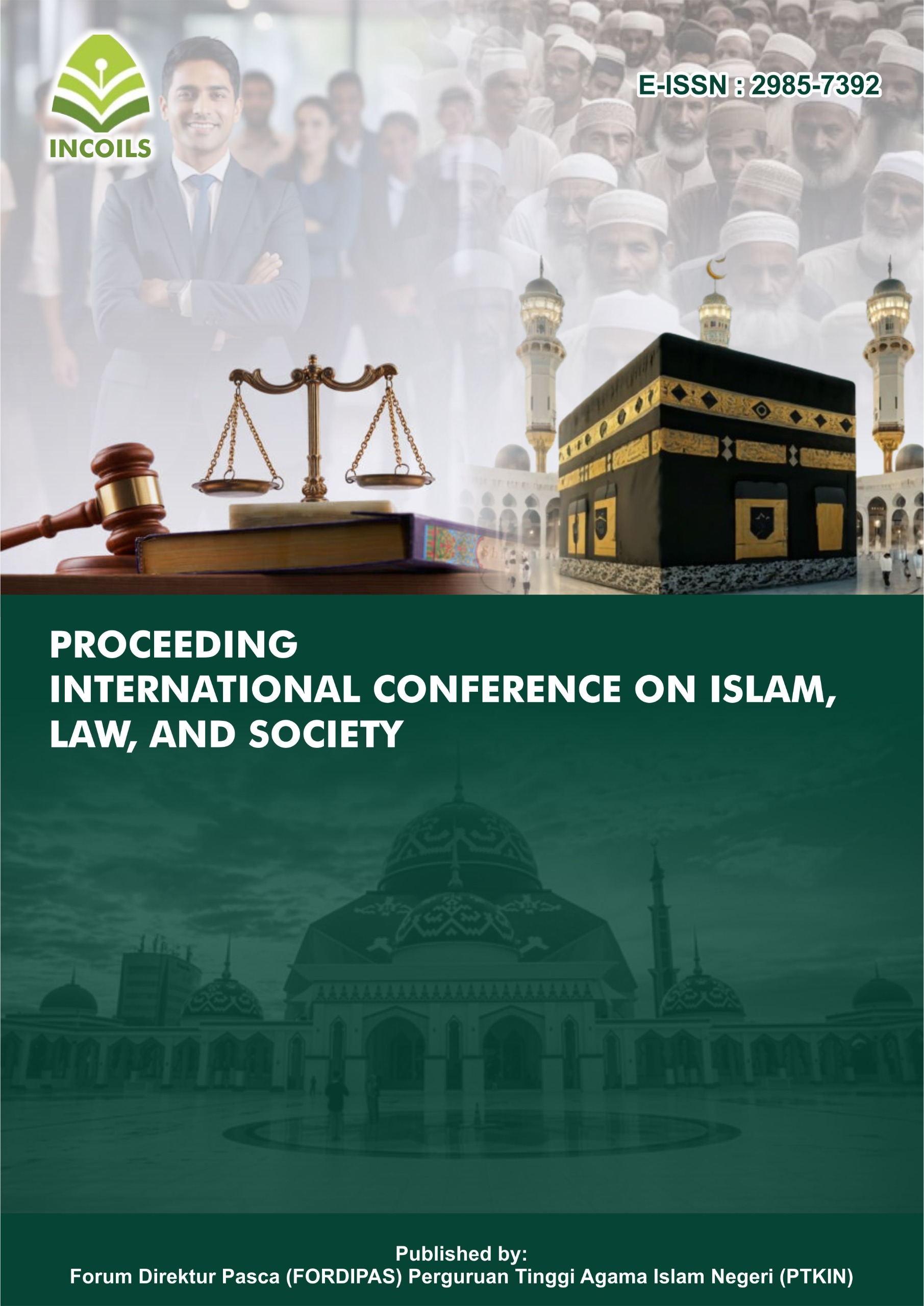The Implementation of Humanistic Education at Aqobah International School to Enhance Student Achievement
DOI:
https://doi.org/10.70062/incoils.v4i1.291Keywords:
Humanistic Education, Student Achievement, Aqobah International School, Student-Centered Learning, Holistic DevelopmentAbstract
The importance of humanistic education lies in its focus on fostering the individual potential of each student, emphasizing a student-centered approach that respects their uniqueness. In modern educational settings, particularly in Islamic schools like Aqobah International School (AIS), implementing humanistic education is vital to support academic and personal development. This study investigates the application of humanistic education principles at AIS and its impact on student achievement. Using a descriptive qualitative research design, this study explores how AIS integrates humanistic educational practices into its curriculum, teaching strategies, and school culture. Data were collected through interviews with educators, observations of classroom activities, and document analysis of school records. The findings reveal that AIS successfully adopts a humanistic approach, characterized by personalized learning plans, teacher-student collaboration, and a nurturing school environment that promotes empathy and mutual respect. Notably, the implementation of humanistic education at AIS has led to significant improvements in students' academic achievements and their overall engagement in the learning process. The study concludes that a humanistic educational approach not only enhances students' performance but also contributes to their holistic growth. This emphasizes the importance of adopting humanistic principles in educational management to create an inclusive and supportive learning environment.References
Abdul, Habib, 'Balancing Traditional Values and Humanistic Education in Islamic Institutions', Global Journal of Islamic Education, 7.4 (2019), 76–90.
Ahmad, Mustofa, 'Humanistic-Based Learning Management: Harmonizing Multiculturalism in Madrasah', Al-Tanzim: Jurnal Manajemen Pendidikan Islam, 7.2 (2023), 50–65 https://ejournal.unuja.ac.id/index.php/al-tanzim/article/download/7067/pdf.
Ahmad Syafii Maarif, 'Humanistic Education in Islam: A Study of Ahmad Syafii Maarif's Thoughts', Muaddib: Studi Kependidikan dan Keislaman, 10.3 (2022), 30–41 https://journal.umpo.ac.id/index.php/muaddib/article/download/5847/2479.
Al-Islam Editorial, 'Humanistic Education Principles in an Islamic Context', Jurnal Al-Islam, 5.1 (2021), 12–25.
Al-Tanzim Editorial Team, 'Application of Humanistic Values in Islamic Education: The Challenges', Jurnal Pendidikan Islam, 14.3 (2017), 320–330 https://media.neliti.com/media/publications/67663-EN-application-of-humanistic-values-in-isla.pdf.
Al-Tanzim Editorial Team, 'Humanistic-Based Learning Management: Harmonizing Multiculturalism in Madrasah', Al-Tanzim: Jurnal Manajemen Pendidikan Islam, 7.1 (2023), 15–28 https://ejournal.unuja.ac.id/index.php/al-tanzim/article/download/7067/pdf.
Creswell, John W., Research Design: Qualitative, Quantitative, and Mixed Methods Approaches, 4th edn (Thousand Oaks, CA: SAGE Publications, 2014).
Deci, Edward L., and Richard M. Ryan, Intrinsic Motivation and Self-Determination in Human Behavior (New York: Springer, 1985).
Freire, Paulo, Pedagogy of the Oppressed (New York: Continuum, 1970).
Ismail, Rahman, 'Inclusive Education Curriculum Management with Modification Humanistic Design', Journal of Social Studies Education Research, 13.2 (2022), 250–269 https://jsser.org/index.php/jsser/article/view/4401/580.
Knowles, Malcolm S., The Modern Practice of Adult Education: From Pedagogy to Andragogy (Englewood Cliffs: Cambridge Adult Education, 1980).
Marshall, Catherine, and Gretchen B. Rossman, Designing Qualitative Research, 6th edn (Thousand Oaks, CA: SAGE Publications, 2016).
Munir, Rashid, 'Innovative Assessment Practices for Humanistic Learning in Islamic Education', Islamic Pedagogy Journal, 3.2 (2022), 45–60.
Rogers, Carl R., Freedom to Learn for the 80s (Columbus, OH: Charles E. Merrill Publishing Company, 1983).
Syamsul Arifin, 'Implementation of Humanistic Learning Theory in Islamic Religious Education', Al-Ishlah: Jurnal Pendidikan Islam, 9.2 (2023), 80–91 https://journal.staihubbulwathan.id/index.php/alishlah/article/download/2211/1598.
Svinicki, Marilla D., and Wilbert J. McKeachie, McKeachie's Teaching Tips: Strategies, Research, and Theory for College and University Teachers (Belmont, CA: Wadsworth Publishing, 2014).
Zawawi, Ahmad, 'Digital Integration and Humanistic Education in Madrasah Systems', Educational Innovations in Islamic Schools, 9.3 (2020), 88–105.
Zabagsqu Editorial Team, 'Humanistic Approach in Islamic Education: Building Emotional and Spiritual Intelligence in the Digital Age', Zabagsqu International Journal of Islamic Studies, 3.2 (2024), 45–58 https://e.journal.zabagsqupublish.com/index.php/zijis/article/view/5.
Zohar, Danah, and Ian Marshall, SQ: Spiritual Intelligence—The Ultimate Intelligence (London: Bloomsbury Publishing, 2000).
Downloads
Published
How to Cite
Issue
Section
License

This work is licensed under a Creative Commons Attribution-ShareAlike 4.0 International License.







